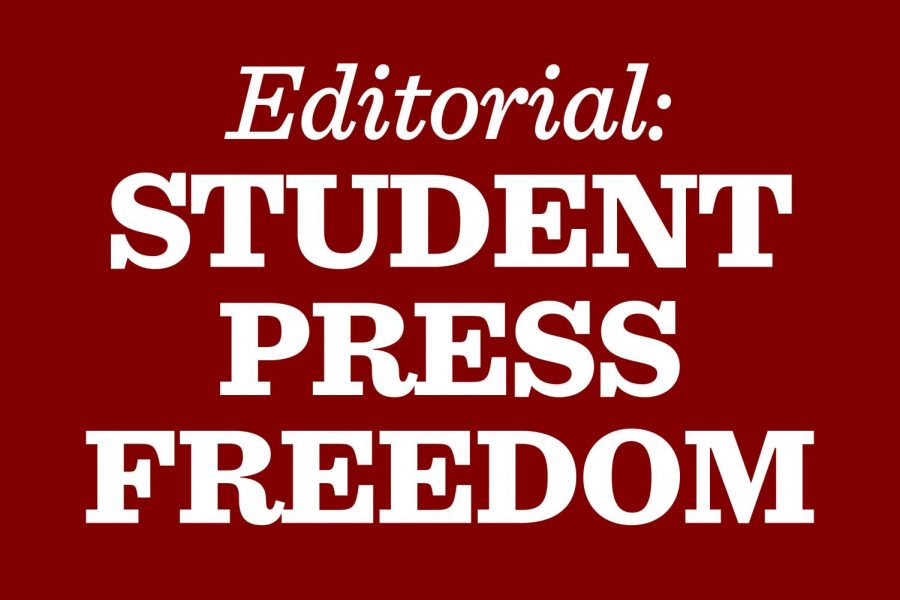At other private schools, a free student press should be the norm
January 30, 2019
Pitch. Research. Interview. Draft. Edit. Repeat. Publish. At Illinois public schools, the journalistic story process begins and ends with the students. Their work doesn’t reach the hands of the administration until publication, and by then, the whole school has seen the final product.
But at private schools, that process can look very different.
Student Press Freedom Day, Jan. 30, and the inauguration of 2019 as the Year of the Student Journalist come at a particularly pertinent time for the U-High Midway. As we have spent the last month extensively covering the termination of Daniel Bobo-Jones, the importance of a free student press has become clearer than ever. The role we’ve been able to take in the community is proof that a free student press is undeniably an asset and should be a universal standard.
Unlike our counterparts at public schools, who, with some specific exceptions, are protected by the First Amendment, private school students check their rights to freedom of speech and the press when they walk through their private school doors.
Unless they attend a school where students are fortunate to have the freedom to publish without administrative review or oversight. It’s uncommon, but that’s what student journalists have at the Laboratory Schools. Student journalists at other private schools in the area, like Francis W. Parker School, are forced to get administrative approval on every story they publish and even then are limited in how their paper can be distributed. It’s unfortunate that in that respect, Lab is anomalous among private schools; it’s unfortunate that for private schools, a free student press is not the norm.
Our coverage of the evolving Bobo-Jones story is a shining example of Lab’s commitment to a free press. Over the last three weeks, we’ve published a number of articles that showcase discontent in the community toward the Lab administration and the schools in general. But throughout this process, community members have often expressed gratitude about our reporting, and we’ve never once felt pressure from the administration to censor what we publish. Through this freedom, we’ve been able to inform the greater Lab community, including families and alumni, of issues that fundamentally challenge our values.
Parent attendees of the Principal’s Chat and University of Chicago faculty members who signed a no-confidence letter have raised serious questions about Lab’s mission and philosophy. Those questions over Lab’s direction come at a time when the community is simultaneously discussing a new strategic plan, beginning the search for a new principal and negotiating a collective bargaining agreement with Lab faculty. Through these institutional changes, the commitment to freedom of expression — including the press — must remain a part of Lab’s identity.
Lab’s mission is to ignite and nurture a “spirit of scholarship, curiosity, creativity, and confidence,” as indicated in its mission statement and wants to fulfill its founding philosophy of learning experientially. If our school is truly committed to fulfilling these ideals, students at U-High must have the ability and freedom to continue asking questions, challenging injustice and sparking conversations about our community.
Free press and free speech must be held in the highest regard if we value student voice and agency. Through our coverage over the last few weeks, we have seen proof that a free student press is integral to our community and firmly maintain that our peers at similar schools deserve the same rights as student journalists.





























































Liz Parker • Jan 30, 2019 at 7:16 pm
I applaud your maturity in recognizing and acknowledging the freedom that the Midway works under. I have learned quite a bit about Lab via the Midway and I look forward to more enlightening, informative and entertaining articles!